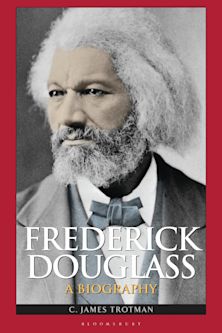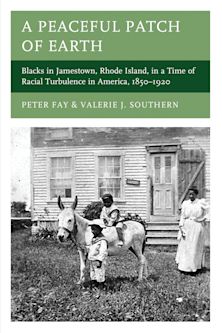- Home
- ACADEMIC
- History
- United States History
- Alexis de Tocqueville and American Intellectuals
You must sign in to add this item to your wishlist. Please sign in or create an account
Description
In this groundbreaking new work, Matthew Mancini tells the surprising story of Alexis de Tocqueville's reception in American thought and culture from the time of his 1831 visit to the United States to the turn of the twenty-first century. The author uncovers an historical record that is replete with unmistakable evidence of Tocqueville's continuing importance to American intellectuals throughout the post-Civil War period of his supposed oblivion, and also of his reputation being exaggerated by recent historians referring to the post-World War II decades.
Through comprehensive analysis of Tocqueville's published works, Mancini critically examines the ways in which Tocqueville's ideas have been received and, at times, misunderstood. Mancini challenges almost every element of the common understanding of Tocqueville's reception into American intellectual culture while recovering and re-examining many important intellectuals of the last 150 years. In doing so, Mancini inscribes an important chapter in American cultural history, namely the idea of Tocqueville himself.
Table of Contents
Chapter 2: At Old Mrs. Otis's
Chapter 3: The American Old Regime
Chapter 4: The Myth of Oblivion
Chapter 5: Enduring Sage
Chapter 6: A Cottage Industry
Chapter 7: Lumpers and Splitters
Product details
| Published | 15 Dec 2005 |
|---|---|
| Format | Ebook (PDF) |
| Edition | 1st |
| Extent | 280 |
| ISBN | 9798216202813 |
| Imprint | Rowman & Littlefield |
| Series | American Intellectual Culture |
| Publisher | Bloomsbury Publishing |
About the contributors
Reviews
-
Though several scholars have referred to Tocqueville's influence, few have attempted composing a thoughtful treatise that explores the how and why of his impact. Not only has Mancini made this pursuit his own, this resulting work is nothing short of essential. . . . Clearly, the historian has spent many years in serious contemplation of his subject, and this intellectually engrossing work benefits from his unambiguous, self-assured interpretation. . . . Essential.
Choice Reviews
-
Mancini's book is a major contribution to the field of Tocqueville scholarship. It is a very bold, ambitious undertaking. Mancini tackles almost all of the major American secondary works, editions and translations relating to Tocqueville since the 1830s.The focus of his work is to tell the story of Tocqueville's reception and reputation in the United States, to survey most of the major writers and scholars who have studied and interpreted Tocqueville's writings and ideas, and to recreate the intellectual links among those Americans who have written about, edited, and translated Tocqueville. His book is not only a significant work of Tocqueville scholarship, but also a fascinating study of American intellectual history, examined through the particular lens of the American reception of Tocqueville. Mancini's work is a project that has been waiting to be done; now he has done it and done it well.
James T. Schleifer, author of The Making of Tocqueville's Democracy in America
-
Matthew Mancini's Alexis de Tocqueville and American Intellectuals: From His Times to Ours is a thoughtful and well researched analysis of the meaning of de Tocqueville to generations of American thinkers and an important corrective to prior interpretations of this complex story.
Hamilton Cravens, Iowa State University
-
The strengths of this book are considerable, not least the demonstration that Tocqueville has never truly disappeared from the American landscape. Especially noteworthy are Mancini's excavations of the Johns Hopkins connection and of Tocqueville's direct and indirect appropriation by American Catholics and Progressives. . . . [Mancini's] book represents a real scholarly contribution that opens up fascinating interpretive possibilities.
Political Studies Review
-
Mancini has produced an invaluable study of Tocqueville's American reception. His criticism of other Tocqueville scholars is pointed, and his exhaustive research is impressive. . . . A major contribution to both Tocqueville studies and American intellectual history.
Gillis J. Harp, Grove City College, Journal of Southern History
-
Professor Mancini has done just what he set out to do, that is show how Tocqueville has been received, interpreted, and re-interpreted over the last century and a half in the United States. A notable contribution to Tocqueville scholarship.
Roger Boesche



































